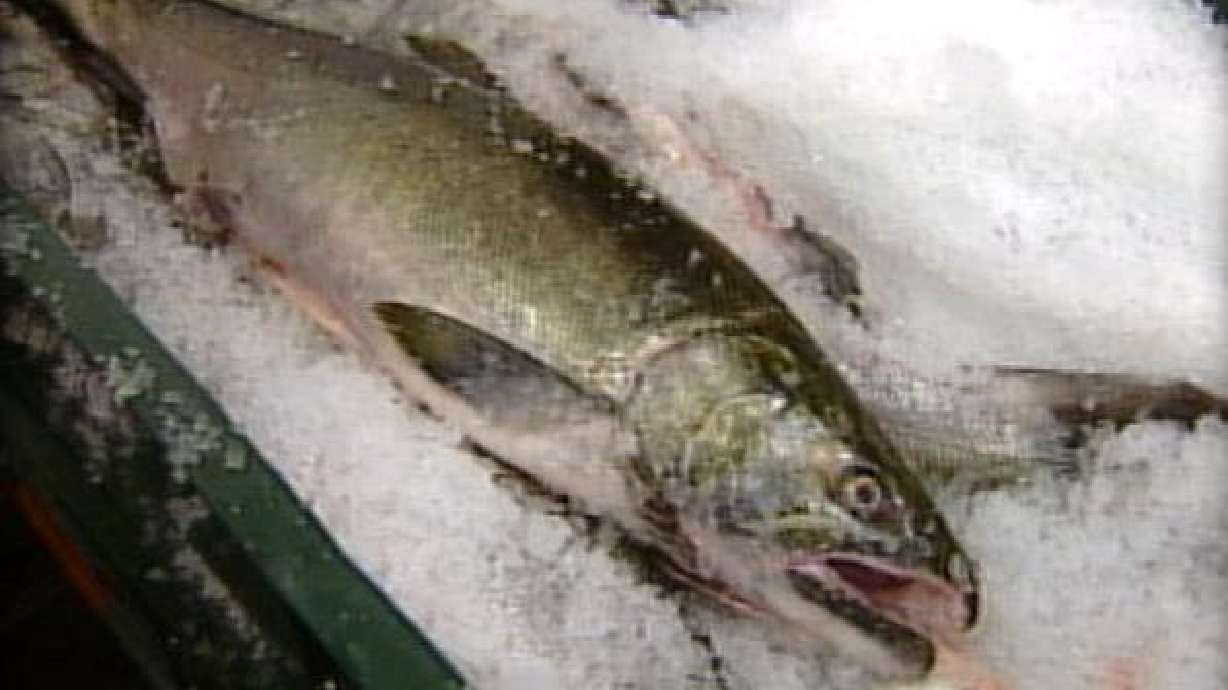Estimated read time: 2-3 minutes
This archived news story is available only for your personal, non-commercial use. Information in the story may be outdated or superseded by additional information. Reading or replaying the story in its archived form does not constitute a republication of the story.
A genetically engineered fish may be hitting a sauté pan in your kitchen very soon. A Boston area company hopes to win approval sometime next year for its high-tech salmon.
How can anyone improve upon Mother Nature? Aqua bounty says it can. Thanks to genetic engineering, the company says its salmon are a new and improved version. CEO of Aqua Bounty Ron Stotish says, "All attributes of the fish are the same as normal Atlantic salmon."
But with one big difference: These salmon grow faster than other salmon. Stotish says, "We can get from fish egg to three to four kilo salmon in a little over a year. Now by comparison, the normal Atlantic salmon would take four to five years to reach that size."

What makes them grow so fast? Scientists added a gene from another fish that allows the salmon to produce growth hormone all-year long. "What we've done is overcome a barrier that's evolved in the salmon over centuries," Stotish says.
For the first time, the Food and Drug Administration (FDA) is taking proposals from Aqua Bounty and other companies that could lead to the marketing of genetically modified meats and fish; however, one expert says that idea stinks. Paul Johnson, founder of the Monterey Fish Market which, says, "It's just much too dangerous for the environment, it's too risky."
The Monterey Fish Market sells sustainably captured seafood. He worries engineered fish will get into the wild, breed and become dominant. He says, "We're going to lose wild fish."
And wild fish have an advantage. Johnson says, "They have more omega-3s, they have fewer pollutants and they just plain taste better."
Aqua Bounty claims its high-tech salmon will be sterile. But you may not even know you're eating it because the FDA, at this time, is not planning on making special labels a requirement on genetically engineered foods.
E-mail: drkim@ksl.com








